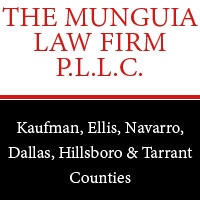Midlothian RICO Act Lawyer, Texas
Sponsored Law Firm
-
 x
x

Click For More Info:
-
Noemi A. Collie, P.C.
1012 N. Bishop Ave. Dallas, TX 75208» view mapCriminal Defense Law Standing Up For Your Rights
We are the region's leading law firm, and have been for more than 20 years. Don't face a criminal charge alone.
800-930-8960
Not enough matches for Midlothian RICO Act lawyer.
Below are all Midlothian Criminal lawyers.
Jesse Munguia
✓ VERIFIEDCivil Rights, Juvenile Law, Estate Planning, Family Law, Employment
The Managing Attorney is Jesse Munguia. We are a full service law firm. We primarily service clients in Divorce, Child Custody, Child Support Modifica... (more)
Natalie Plummer
✓ VERIFIEDCriminal, Accident & Injury, Divorce & Family Law, Business, Estate
Attorney Natalie Plummer - formerly Attorney Natalie Reed My goal is simple. I will do my best and fight my hardest to meet your needs. Whether y... (more)
Lisa Aileen Wyatt
Juvenile Law, Family Law, Criminal, Elder Law
Status: In Good Standing Licensed: 35 Years
John C Mallios
Estate Planning, Personal Injury, Family Law, Criminal, Business
Status: In Good Standing
FREE CONSULTATION
CONTACTPaul Thomas Vincent
Family Law, Criminal, Wills, Administrative Law
Status: In Good Standing Licensed: 17 Years
 Noemi Collie Dallas, TX
Noemi Collie Dallas, TX Practice AreasExpertise
Practice AreasExpertise


